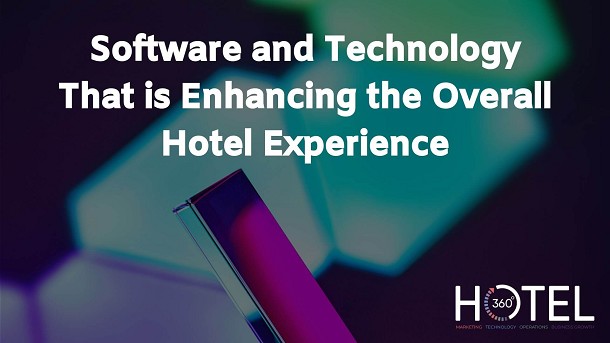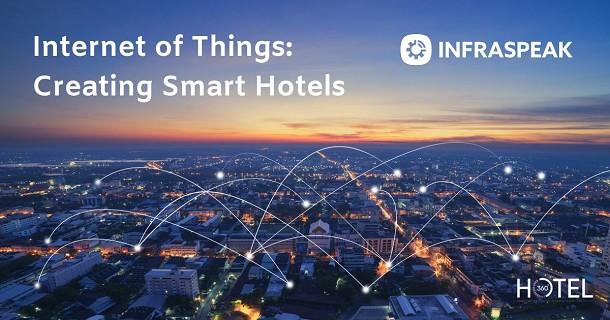Internet of Things: Creating Smart Hotels
Connectivity in facility management, as a concept, has been around since the very first facility that required maintenance. For better or worse, facility managers throughout history have constantly aimed to keep all their assets, locations and staff connected and constantly cooperating.
Recently, thanks to various technological advancements such as sensors, machine learning, real-time analytics or even artificial intelligence it’s now possible for a system, regardless of its complexity, to fully connect its individual elements in an Internet-of-Things. The hotel industry is no exception to this and being able to know what is happening with every single aspect of your operations, from your guest elevator to the temperature of your spa, can make the difference between an unhappy guest or the perfect review.
How Can Iot Improve Your Hotel’s Operations?
IoT doesn’t stop at simply connecting your guest elevator or at tracking the temperature of the spa. With the right sensors and a well planned network providing real time information to the right software, you are able to compile and optimise the most important resource for your operations: information.
While this means a whole new level of operational control - from asset and location tracking to much more complex features like optimising your energy consumption or waste management - the main benefits come out of how that information is processed. With your system connected and a central database of easily accessible data, technicians and managers can view the exact information they need for their tasks or maintenance plans. All in real time - saving time, money and energy and keeping the entire team connected.
Another major benefit of picking the right CMMS & Facility Management software for your hotel is being able to customise the platform to perfectly fit your operations and business needs of your hotel.
Hotels like Six Senses - Douro Valley, in Portugal, offer their guests features like spas, wine library, organic gardens and beautiful swimming pools, but they also offer the perfect selection of rooms and when it comes to their guests’ experience, they can’t afford to take any chances.
While most would use their software to create efficient maintenance routines and fix issues as fast as possible, Six Senses takes it one step further and uses Infraspeak to focus on preventive maintenance plans to fix problems before they’re even noticed. With over 1000 requests successfully dealt within the first 12 months, Six Senses makes sure to keep its guests’ expectations and the quality standard of its hotels at its highest by creating a thorough maintenance checklist for each of its rooms and having the hotel’s technicians run it every three months.
These checklists include everything and anything a guest might encounter during their stay that could potentially go wrong. From plumbing and keycards to whether or not the price board at the wine shop has been properly set up. For some rooms, the importance of the quality of the stay for the guest is so high that the checklist is implemented every month.
No effort is too great in order to continuously remain a reference in the hospitality industry, and their guests know it.
How Smart Can a Hotel Get?
Of course, it’s not just about wanting it. Six Senses has years of experience in delivering the best possible hotel room experiences to their guests and they know a smart hotel doesn’t become smart overnight. To do it, you need the right people, the right planning and, of course, the right technology in the form of the perfect maintenance & facility management software for your operations. In order for different departments to come together and remain coordinated while creating the perfect room, especially when it happens as often as every month, a digital reporting and communication platform must be used.
What makes a hotel smart always comes down to how much data you can collect, the insights you can generate and how much of your system is connected. Some CMMS & Facility Management software can then use their analysis tools and features like artificial intelligence or machine learning to detect and predict how you can improve your hotel’s maintenance and when certain assets are likely to malfunction. Technology can also be used to help expand your IoT and useful features like NFC tags can even allow you to connect to an asset in offline mode and later sync it with the rest of the system.
Smart buildings have been increasingly gaining traction recently and for good reason. A smart hotel can help with more than just their guests’ stay. It can contribute to a greener future with self-sustainable waste management or resource reutilisation programs. It can become more energy efficiency by reducing the amount of maintenance operations or optimising electricity, gas and water usage. It can also improve communication with all parts involved, including guests.
In the end, technology can provide your facility (be it a technical assistance operation, a manufacturing facility or a hotel) with a constant flow of data and the tools to draw better conclusions and in turn, make better decisions for you and your business.
Website | Twitter | LinkedIn | Instagram | Facebook
NEXT READ: Software and Technology That is Enhancing the Overall Hotel Experience



